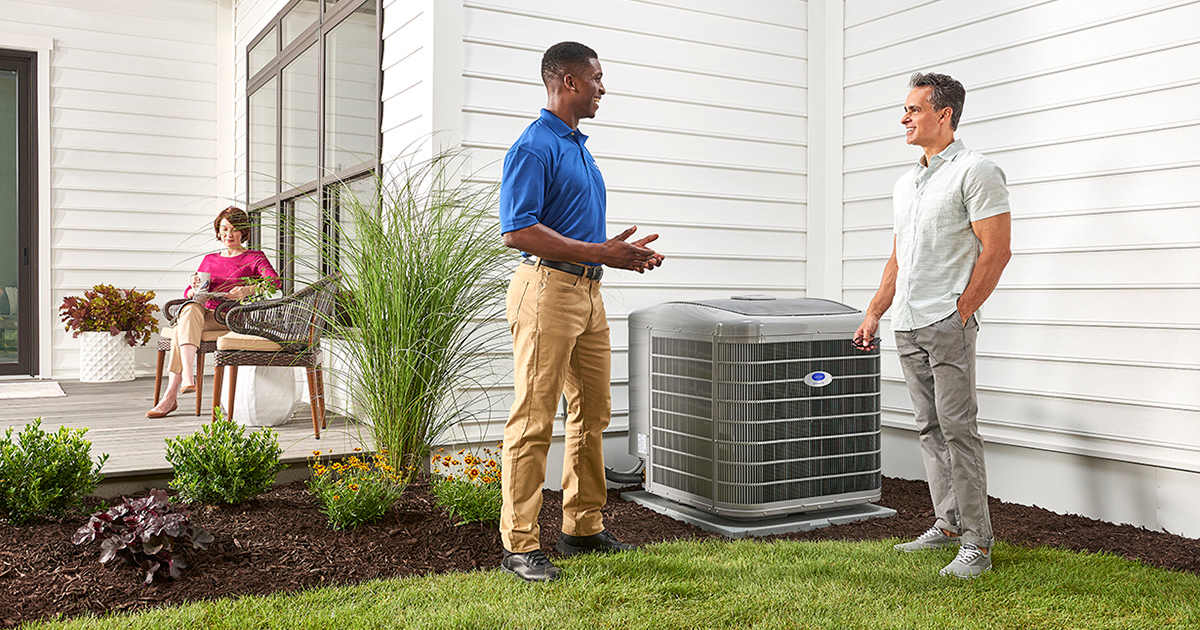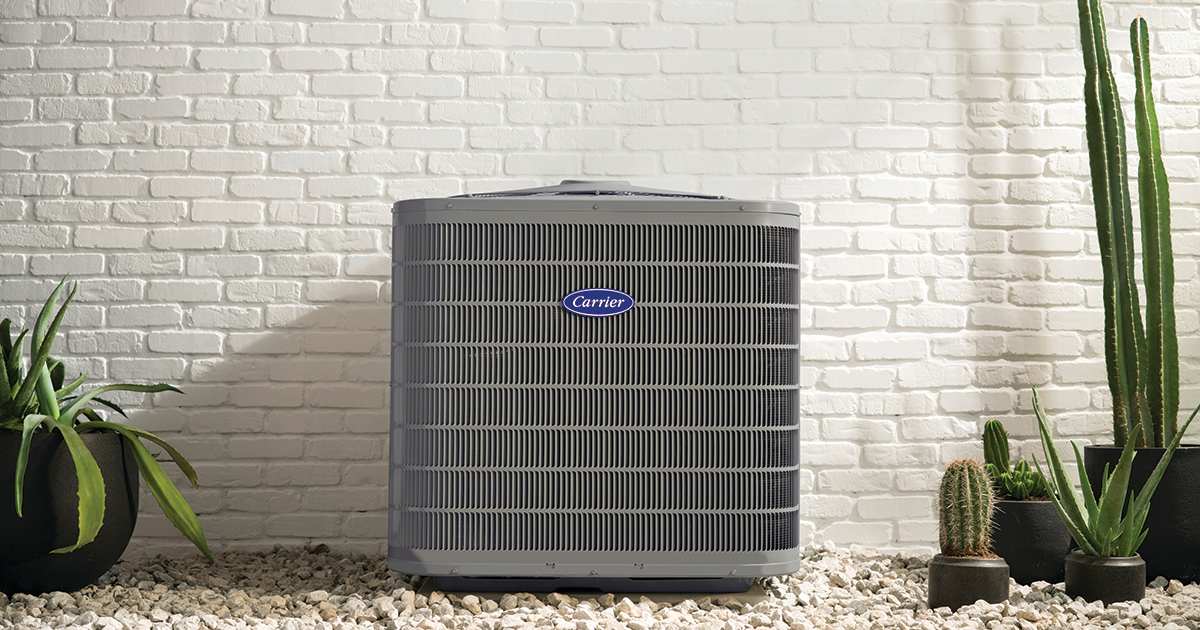What Is BTU Meaning in Air Conditioning?
By Travis Baugh
If you ask the question what is BTU and what does it have to do with air conditioning, you are not alone. A basic understanding of BTU meaning and BTU ratings will help you choose the correct air conditioner to maximize the comfort and efficiency of your home.
WHAT DOES BTU STAND FOR?
BTU stands for British Thermal Unit. By definition, one BTU unit is the amount of energy needed to raise the temperature of one pound of water one degree Fahrenheit.

The scientific definition of BTU (British Thermal Unit) is the amount of heat required to raise the temperature of one pound of water by one degree Fahrenheit at a specified temperature. It is a standard unit of measurement used to quantify thermal energy.
BTU originated as a practical measure of heat in the early 19th century in England. It was primarily used in engineering and industry to quantify the amount of energy needed to heat or cool spaces. This unit remains relevant in modern HVAC engineering and energy efficiency standards, providing a basis for comparing the thermal performance of various HVAC systems.
BTU MEANING: HOW DOES BTU RELATE TO HVAC?
BTU technically represents a specific amount of heat energy, but BTU ratings are used for both heating and cooling systems to indicate how much capacity they have to either heat or cool your home.
Air conditioning works by removing heat and moisture from indoor air through a refrigeration cycle. The process involves compressing and expanding a refrigerant fluid, which absorbs heat from the indoor air and releases it outside, resulting in cooler air circulated back into the living space. Learn more on how air conditioning works.
BTU (British Thermal Unit) ratings quantify the heating capacity or cooling capacity of systems like furnaces, air conditioners, and heat pumps. For heating systems, higher HVAC BTU ratings indicate greater heat output. In cooling systems, air conditioner BTU ratings measure the amount of heat an air conditioner can remove per hour, indicating its cooling capacity.
WHY THE BTU RATING IS IMPORTANT
While it might be tempting to just buy the highest BTU AC you can find, that’s not a good idea. Heating and cooling systems operate most efficiently, last longer and provide the best comfort when their BTU output is properly matched to the needs of the home. That’s why an accurate answer to the question “how many BTU do I need?” is so important.
When assessing the BTU needs of your home, it’s not a question of whether higher or lower BTU is better. In reality, you want the BTU of your system to match as closely to the BTU needs of your home for the best comfort, energy efficiency and life expectancy. Here’s why:
If your system provides too much heating or cooling capacity in BTU, your system will quickly heat or cool the room, then turn off quickly a well. This is called short cycling, and it causes undue wear and tear on system components due to the higher frequency of on-and-off operation. Not only will you experience the discomfort of dramatic up-and-down temperature swings, you may even shorten the life of your system.
On the other end of the spectrum, purchasing a system with lower than needed BTU will cause the system to run constantly in an effort to deliver comfort. Overworking the system can shorten its lifespan, increase energy bills, and leave you less than comfortable along the way. This is why HVAC system manufacturers like Carrier offer models that cover a range of BTU outputs. The typical range for residential ducted central air conditioning models starts at 18,000 BTU and goes up to 60,000 BTU.
So, how do you make sure to select the ac unit with the right BTU rating for your space?
HOW TO CALCULATE THE BRITISH THERMAL UNITS NEEDED FOR YOUR HOME
To accurately assess how many british thermal units your air conditioner will need to efficiently cool your home, starts with a full analysis of your house. Some of the factors are easily measurable, square footage and ceiling height.
The number of BTUs required per square foot of living space depends on several factors including climate, insulation, ceiling height, and windows. As a general guideline the Department of Energy says that a 12,000 BTU unit should be sufficient for 400-500 square feet but if the house is sealed and insulated well that unit could condition up to 1,000 square feet.1
if a home requires 12,000 BTUs (British Thermal Units) of cooling power, and assuming a standard efficiency of air conditioning systems, you can calculate the required tonnage of the air conditioner needed:
Convert BTUs to Tons: 1 ton of cooling = 12,000 BTUs per hour So, 12,000 BTUs / 12,000 BTUs per ton = 1 ton. Therefore, a 1-ton air conditioner would be needed to provide the required 12,000 BTUs of cooling capacity for the home.

There are a number of additional factors that help determine the proper heating or cooling capacity needs of a home that aren't as easy to measure. Those factors include how well a home is insulated; condition of existing ductwork; size, number and quality of windows; number of floors above and below ground; exterior building materials, and more. For example, a poorly insulated home will require additional capacity to keep up with heating or cooling loss compared to a better insulated space. Or, a newer home with high-efficiency windows might require less capacity than a similarly sized older home with less efficient or poorly sealed windows.
BRITISH THERMAL UNITS, Tonnage, AND SEER2
Other AC ratings to consider include tonnage and SEER2. AC tonnage refers to the cooling capacity of an air conditioning system and is measured in tons. One ton of cooling capacity is equivalent to 12,000 BTUHs (British Thermal Units per hour). SEER2 stands for Seasonal Energy Efficiency Ratio 2 and will tell you how energy efficient the unit is. It is a measure of the efficiency of an air conditioning system over an entire cooling season, calculated by dividing the cooling output (measured in BTUs) by the energy input (measured in watt-hours).
Climate zones can be a factor as well. A home in a cold climate may require more BTU per square foot for heating than a home in a warmer zone where more humidity is present. Because of the number of climate zones in the U.S., that factor will vary from zone-to-zone.
HOW CARRIER CAN HELP YOU PICK THE RIGHT AC UNIT
Understanding BTU requirements is a great first step towards finding an air conditioning system that balances cooling capacity with energy efficiency throughout your home. Some high-end models offer variable-capacity capabilities, like our Infinity® Variable-Speed Air Conditioner that can adjust output to match changing needs. There are a lot of options, so it’s important to work with a Carrier comfort expert to select a system that fits your comfort needs and budget.
We recommend that you find a local Carrier expert to provide a professional assessment of your home using a BTU Calculator. Your local Carrier dealer has the tools and expertise to properly size a cooling and heating system that fits your climate, your home and your personal preferences. And, with access to Carrier’s comprehensive family of indoor comfort products, your Carrier dealer is both equipped and backed by the inventor of modern air conditioning After “Regardless of” sentence in closing paragraph, add “Learn more about AC ratings such as what is BTU and SEER2.

1https://www.energy.gov/sites/prod/files/guide_to_home_heating_cooling.pdf

